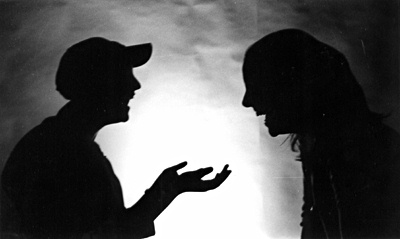All Nonfiction
- Bullying
- Books
- Academic
- Author Interviews
- Celebrity interviews
- College Articles
- College Essays
- Educator of the Year
- Heroes
- Interviews
- Memoir
- Personal Experience
- Sports
- Travel & Culture
All Opinions
- Bullying
- Current Events / Politics
- Discrimination
- Drugs / Alcohol / Smoking
- Entertainment / Celebrities
- Environment
- Love / Relationships
- Movies / Music / TV
- Pop Culture / Trends
- School / College
- Social Issues / Civics
- Spirituality / Religion
- Sports / Hobbies
All Hot Topics
- Bullying
- Community Service
- Environment
- Health
- Letters to the Editor
- Pride & Prejudice
- What Matters
- Back
Summer Guide
- Program Links
- Program Reviews
- Back
College Guide
- College Links
- College Reviews
- College Essays
- College Articles
- Back
Felon Voting
Voting is something many Americans see as universal. The conflict of felons voting isn't an issue most Americans are familiar with. Each state holds the right to make its own felon disenfranchisement laws. Felon disenfranchisement regards the issues of voting while in prison. While it may seem to some that we can trust all voters, it is the reality that felons shouldn’t vote because we can’t trust their judgment and they are being punished.
The issue of felon voting has long been debated. Let us consider the sate we come from. The state of Nevada has one of the harshest felon disenfranchisement laws in the whole country. Here you lose voting rights forever for a violent felony or a repeated offense. You can appeal to get your voting rights back through court. It is common find comfort in these harsh laws. Imagine if your daughter were murdered, raped, or kidnapped. Would you want the individual who did these horrendous crimes to be able to vote on legislation that directly affects you? Many say voting is a fundamental right, while others say it is part of the punishment. People often say punishment can be excessive and unnecessary. Others counter that felons have proven untrustworthy. It is true that we don’t let children or other individuals of which we don’t trust their judgment vote. Each state is called upon to create its own felon disenfranchisement laws. To be sure though, we must look at other opinions and facts.
Felon voting isn’t just a simple issue. Many argue that this is an issue barring certain races and political parties from voting. Statements have been made stating these laws only block certain demographics from voting. This issue has to be seen separate from race or political affiliation. Pam Bondi Florida attorney general makes a good point when she says “Justice has nothing to do with race.” If certain races are statistically higher in jails it is not the fault of the of the disenfranchisement law. This same principle stands for political ideologies. It doesn’t matter how person votes or what party they stand behind. It has been shown that in different states different demographics and parties can be found in prisons (Dr. Mark Meredith and Paul Berendt). Others also question if the felons deserve this and wonder if they did something serious enough that they deserve this. But statistics show that almost 50% of all felons are convicted for a violent crime (United States department of justice). Do you want the person who killed your daughter or abused you to be able to control the legislations that affect you? Disenfranchisement is to keep us all safe and isn’t a matter of race or political affiliation.
There are even more pressing issues in felon disenfranchisement. One of those issues is the issue of trusting a felon’s judgment. A felon’s judgment is often not questioned by many Americans. Rodger Clegg explained it best in a legal affairs debate “We don't let children vote, for instance, or non-citizens, or the mentally incompetent. Why? Because we don't trust them and their judgment.” People who have already committed a crime against our society have shown that their judgment is impaired. Are these the individuals we want picking our representatives, governor, or mayor? Many say this is excessively harsh or unconstitutional. On the contrary the law actually supports felon disenfranchisement. Hayden v. Pataki case shows that felon disenfranchisement is not unconstitutional and is within the proper rights of the government. Also the 14th amendment endorses felon disenfranchisement rights (Judge Alex Kozinski). Besides all these ideas it is also true that your sentence reflects your crime. The less serious your crime and the shorter your jail time means you gain the right to vote back faster. This is a classic tale of cause and effect because you can’t get away with everything.
Felons have shown they can’t be trusted and it is completely within our rights as citizens to support felon disenfranchisement. Each one of us holds influence over elected officials and as voters we are called upon to make smart decisions. When someone shows they can’t make educated decisions by committing a crime against our society they have proven they shouldn’t help make decisions that affect us as a whole. In many states killers and molesters can still vote and this has to be stopped. While they are serving their debut they lose the right to vote. After a person is out of jail they deserve their right to vote back as they have paid their dues. We live in we live in a world where everyone must play their part, crimes must be punished, and educated decisions must prevail.

Similar Articles
JOIN THE DISCUSSION
This article has 0 comments.
